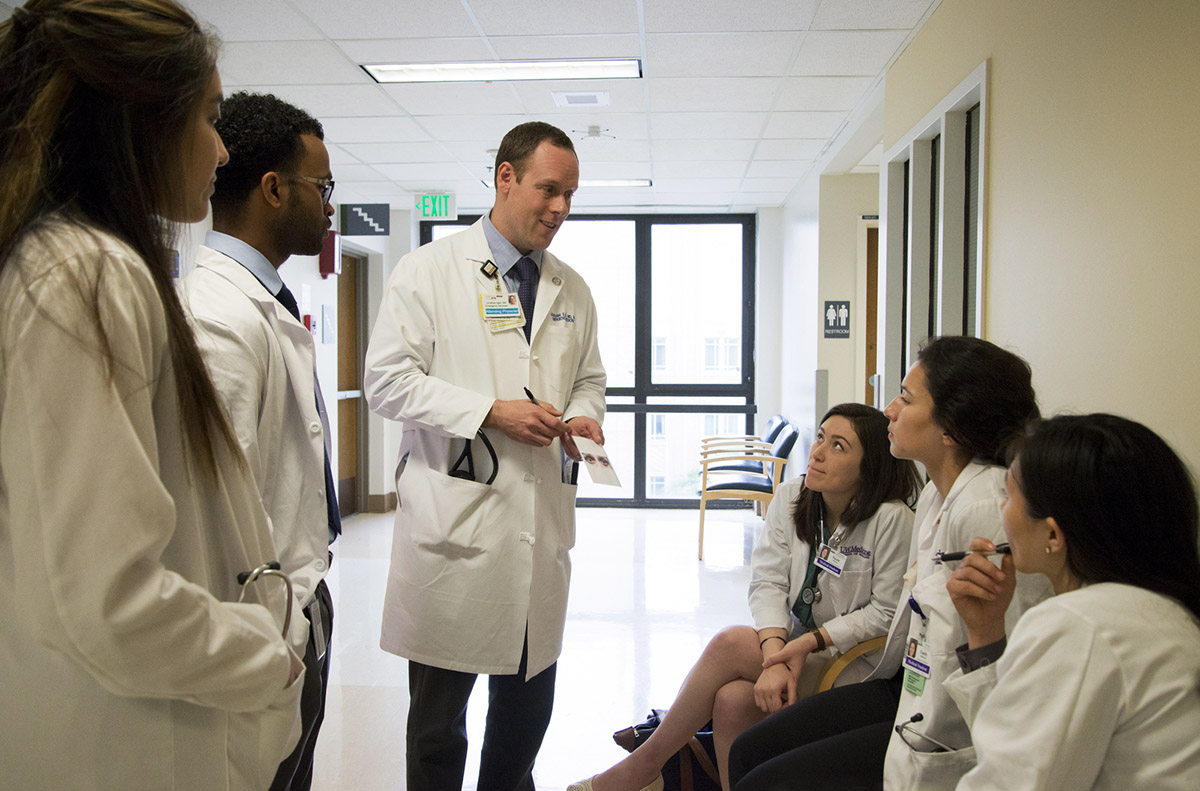WELCOME FROM THE PROGRAM DIRECTOR
Thank you for your interest in the University of Washington's Physical Medicine & Rehabilitation residency program. I trained at UW and am delighted to be serving as Program Director. I truly believe that this program provides exceptional training for our residents by prioritizing mastery of skills and knowledge, scholarship, and autonomy in a supportive learning environment. I look forward to continuing to grow and improve our program to meet the needs of our residents.
Our program is unique in that residents learn in an unparalleled variety of training settings in our community. At the University of Washington, the Department of Rehabilitation Medicine has a long-standing history of fostering collaboration with other departments and services and our trainees benefit from these relationships.
Our trainees learn from the best. UW PM&R faculty are a diverse group of national leaders in our field, eager to teach and share expertise with the next generation of physiatrists both in the classroom and in clinical practice.
We strive to recruit exceptional residents from diverse backgrounds who have trained in allopathic and osteopathic medical schools across the country and beyond.
We are honored that you are considering our program!
With gratitude,
Julie A Hodapp, MD
Program Director
PROGRAM OVERVIEW
Our department has excellent relationships with clinical departments associated with physical medicine and rehabilitation such as neurosurgery, neurology, and orthopaedics. We also draw upon the basic science research units in the UW School of Medicine and relevant undergraduate and graduate schools.
Each year, residents are accepted at both the PGY-1 and the PGY-2 levels. We have three PGY-1 positions and 27 positions distributed among the PGY-2 through PGY-4 levels.
For those entering at the PGY-1 level, the department has developed a program that satisfies the 12-month experience requirement of the American Board of Physical Medicine and Rehabilitation (ABPMR). Rotations are specifically selected to meet the needs of future physiatrists (rehabilitation physicians), emphasizing the development of skills and knowledge in internal medicine, emergency medicine, pain management, orthopaedics, and geriatrics.
Our residents average 13 months of inpatient time, 7 months providing consultative care, 13 months caring for outpatients with a wide variety of diagnoses, 3-4 months in MSK/Sports Medicine and 4-5 months on Electromyography (EMG).
Residents take call from home in 3-4 day blocks. Residents spend an average of 4-6 weeks on call each year.
The didactic program is structured to cover all the pertinent basic sciences and clinical applications. Opportunities for research abound for the interested resident. Our residents do extremely well on the training and Board exams, and are highly competitive for fellowship positions and clinical practice employment opportunities.
Each resident is assigned a faculty adviser to assist them with navigating residency. Residents build a department mentor team as they advance in training and define their interests.
Our program offers two exciting track possibilities within our program: research and medical education.
- Research: The research track is designed to provide residents with dedicated mentorship and protected time to support scholarly work. In partnership with the prestigious Rehab Medical Scientist Training Program (RMSTP) through AAP, residents gain hands-on research experience and the opportunity to present and publish at the national level while training at a top academic institution.
- Medical Education: The medical education track is designed to prepare residents to become exceptional future medical educators. Through our partnership with the Center for Leadership and Innovation in Medical Education (CLIME), participants receive specialized training in teaching skills, curriculum design, and educational scholarship, gaining the tools to inspire and train the next generation of healthcare professionals.
The Physical Medicine & Rehabilitation Residency Program meets the General and Special requirements of the Accreditation Council for Graduate Medical Education (ACGME) and has full accreditation. Graduates of our department have achieved national recognition in academics, and as clinicians and leaders of professional organizations.
Associated fellowship programs include Amputation Rehabilitation, Brain Injury Medicine, Cancer Rehabilitation, Multiple Sclerosis, Pediatric Rehabilitation Medicine, Rehabilitation Research, Spinal Cord Injury Medicine, and Sports Medicine. The University of Washington/VA Puget Sound offers a PM&R Chief Resident Position in Quality and Patient Safety. The University of Washington also offers fellowship programs in Hospice & Palliative Care, Neuromuscular Medicine, and Pain Medicine.
CURRICULUM
The academic curriculum is designed to create a physician who is well prepared to practice in any area of rehabilitation medicine. Our residents do extremely well on the self-assessment and board exams and are highly competitive for fellowships and jobs. Regularly scheduled seminars and conferences on Tuesday mornings address a variety of special topics.
Basic science instruction is carried out in structured courses. These class hours are incorporated into all clinical rotation schedules. This program of instruction begins in the PGY-2 year. The curriculum includes:
- Amputee Rehabilitation and Principles of Prosthetics
- Biomechanics
- Clinical Musculoskeletal Medicine
- Electrodiagnosis and Clinical Neurophysiology (EMG)
- EMG Seminar
- Grand Rounds
- Healthcare Disparities in Rehabilitation Medicine
- Introduction to PM&R
- Musculoskeletal Seminar
- Musculoskeletal Medicine and Modalities
- Neurorehabilitation
- Orthotics and Assistive Devices
- PGY-2 Seminar
- Practice Management
- Program Director Sessions
- Reflective Practice and Professionalism
- Research Methodology & Scholarly Activity
- Ultrasound Seminar
- Journal Club
Requirements for graduation from the residency program include the completion of a scholarly activity designed to include an opportunity for peer review of oral and written work, depending on the individual objectives of the resident.
resident committees & Volunteer opportunities
Residents are expected to participate in committee work as well as to participate in volunteer activities that benefit our community. We believe that these opportunities help develop well-rounded physiatrists who are prepared to serve their patients and communities.
Committee work may include UW PM&R Residency committees, committees that serve UW GME or hospitals, or in state or national medical associations relevant to our field. Committees our residents are currently involved in include:
- Resident Recruitment & Wellness Committee (RWC)
- Resident Quality Improvement Committee (RQUIC)
- Resident Equity Diversity & Inclusion Committee (REDIC)
- Community Outreach Through Adaptive Sports (COTAS)
- Institutional: NURF, CIR (Union), GME
- Support for National Committees involvement
- AAP, AAPM&R, ACGME, AAMC, AMSSM, AANEM
Volunteer opportunities include medical coverage for sports events or other recreational activities (e.g. sideline coverage, road race coverage, Special Olympics physicals) under department faculty oversight. Residents may also volunteer with local adaptive sports organizations:
- Adaptive Sports (Tennis, basketball, sailing, skiing, etc.)
- Seattle Marathon, Rock n' Roll Marathon, Ironman 70.3
- College & High School Sports Coverage
- Outdoors for All
- Camp Korey
- Nick of Time (Cardiac Screening)
- Seattle SeaWolves Rugby Coverage
Core Training Sites
The UW PM&R residency program has four main training sites.
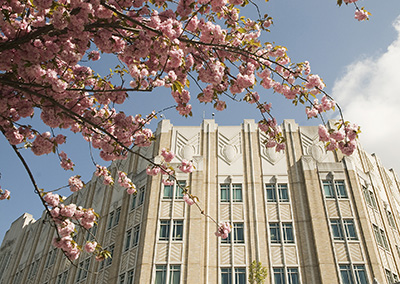
HMC is the only designated Level I adult and pediatric trauma and verified burn center in the state of Washington.
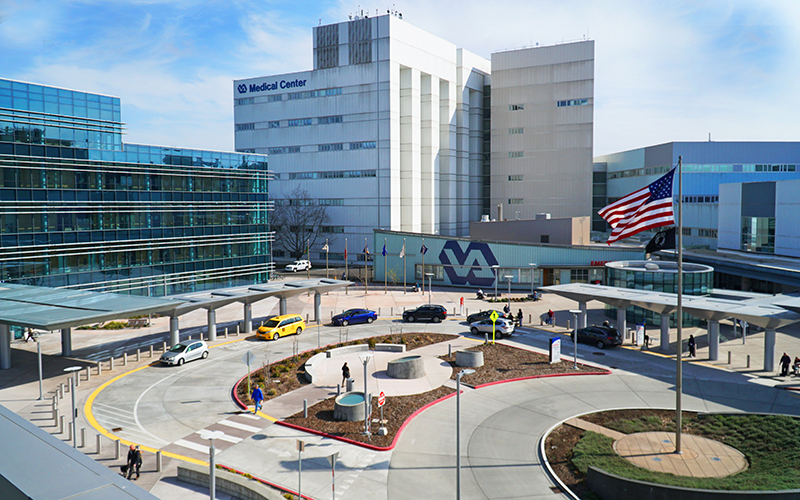
VA Puget Sound Health Care System
VA Puget Sound Health Care System health care teams are deeply experienced and guided by the needs of Veterans, their families, and caregivers.
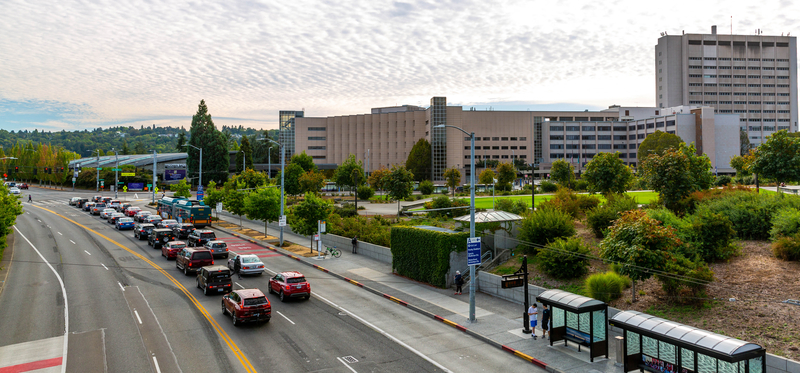
University of Washington Medical Center & Sports Medicine Center
UW Medical Center is Washington’s #1 Hospital 10 years in a row.

The spotlight title goes here
The spotlight subtitle goes here.

The spotlight title goes here
The spotlight subtitle goes here.
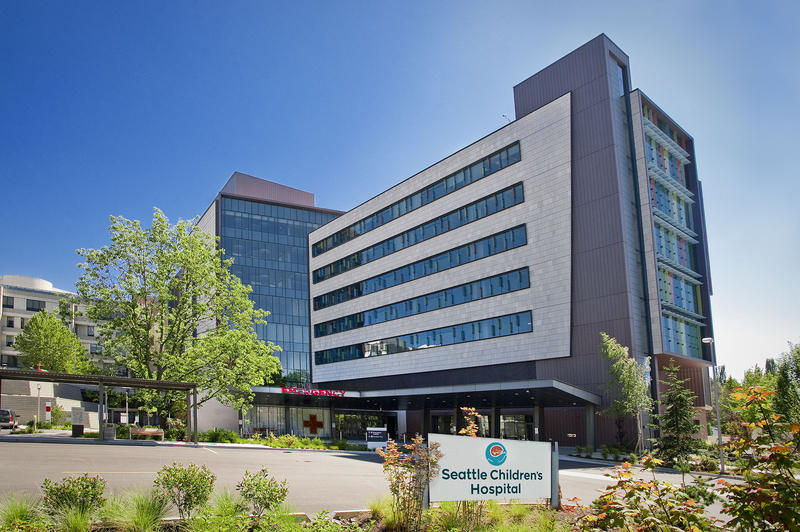
Seattle Children's is ranked as one of the best children's hospitals in the nation.
STIPENDS & BENEFITS
In October of 2014, the University of Washington Housestaff Association (UWHA) was certified as the labor union and exclusive bargaining representative for the majority of residents and fellows in the UW School of Medicine (UW SOM). Over the years the union has changed names and is now referred to as CIR-NW.
Resident base stipends and benefits are determined by the union contract and the annual Residency and Fellowship Position Appointment (RFPA), which is available for review online and as part of the interview process.
Additional information prospective residents, including stipend schedule and benefits, is available on the UW GME prospective residents information page.
Financial assistance is currently provided to all senior residents to register for a national meeting such as the American Academy of Physical Medicine and Rehabilitation (AAPM&R) annual assembly in the PGY-4 year. Residents who present papers or posters at national meetings may also receive financial support as funds allow, regardless of their level of training.
Residents are entitled to staff privileges at the University, including use of the library resources, computer centers, an e-mail account, athletic facilities including the waterfront activities center, and reduced prices on tickets for many sports, arts and cultural activities.




